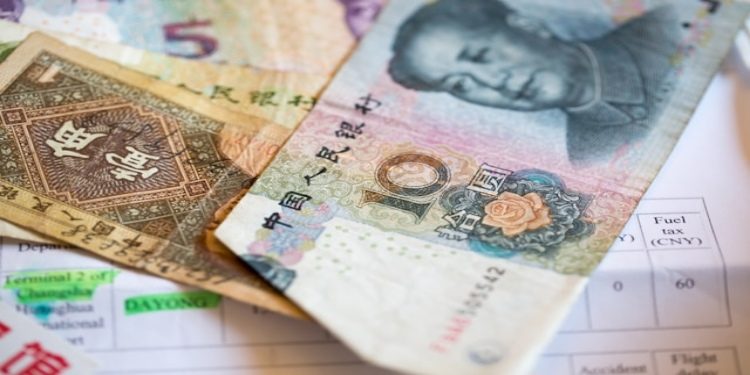Introduction
The implementation of the Digital Yuan, China’s central bank digital currency (CBDC), has profound implications for the country’s economic policy. As the world’s second-largest economy, China’s adoption of a digital currency carries significant weight in shaping global financial trends. The Digital Yuan is part of China’s broader strategy to modernize its financial infrastructure, promote financial inclusion, and reduce reliance on cash transactions. This article explores the impact of the Digital Yuan on China’s economic policy, focusing on its effects on monetary policy, financial inclusion, cash dependence, internationalization of the Yuan, regulatory implications, and prospects. So, if you are looking for a website that connects you to investment education firms that can help you along your investment journey, consider visiting https://yuan-fortune.org/.
Digital Yuan and Monetary Policy
The Digital Yuan plays a crucial role in China’s monetary policy by providing the central bank with greater control over the money supply and interest rates. Unlike traditional currencies, the Digital Yuan can be programmable, allowing the central bank to implement policies such as negative interest rates or targeted stimulus measures more effectively. This flexibility enhances the central bank’s ability to respond to economic challenges and maintain stability in the financial system.
Moreover, the Digital Yuan can improve the efficiency of monetary policy transmission by reducing the time lag between policy implementation and its impact on the economy. By enabling faster and more direct distribution of funds to individuals and businesses, the Digital Yuan can stimulate economic activity more efficiently than traditional monetary policy tools.
Financial Inclusion and Economic Growth
One of the primary objectives of the Digital Yuan is to promote financial inclusion in China. By providing a digital payment system that is accessible to all, including those in remote or underserved areas, the Digital Yuan can help bring millions of people into the formal financial system. This, in turn, can lead to increased savings, investment, and consumption, driving economic growth and reducing income inequality.
Furthermore, the Digital Yuan can lower transaction costs for small businesses and individuals, making it easier for them to participate in the economy. This increased economic activity can stimulate growth in sectors that were previously underserved, contributing to overall economic development.
Reduction of Cash Dependence
The Digital Yuan also aims to reduce China’s dependence on cash, which can have several positive effects on the economy. First, by reducing the use of cash, the Digital Yuan can help combat illicit activities such as money laundering and tax evasion, improving the integrity of the financial system. Second, it can lower the cost of managing cash, including printing, transporting, and storing physical currency, leading to cost savings for the government and businesses.
Additionally, the Digital Yuan can improve transparency in transactions, as all transactions are recorded on a blockchain, making it easier to track and trace funds. This transparency can help reduce corruption and improve the efficiency of the financial system.
Internationalization of the Yuan
The Digital Yuan could also play a significant role in the internationalization of the Chinese Yuan. As China seeks to reduce its reliance on the US dollar in international trade and finance, the Digital Yuan could provide a viable alternative for cross-border transactions. By facilitating faster, cheaper, and more secure international payments, the Digital Yuan could increase the global use of the Chinese Yuan and enhance China’s influence in the global financial system.
Moreover, the Digital Yuan could help China bypass the existing international payment infrastructure dominated by Western financial institutions, reducing its vulnerability to sanctions and other forms of financial coercion.
Regulatory and Legal Implications
The implementation of the Digital Yuan raises several regulatory and legal challenges. One of the key issues is the need to ensure data privacy and security, as the Digital Yuan involves the collection and processing of large amounts of sensitive financial information. China will need to implement robust data protection laws and cybersecurity measures to address these concerns.
Furthermore, the Digital Yuan raises questions about its compatibility with existing financial regulations and international standards. China will need to work closely with other countries and international organizations to ensure that the Digital Yuan complies with relevant regulations and does not disrupt the global financial system.
Challenges and Future Prospects
Despite its potential benefits, the Digital Yuan faces several challenges in its implementation. One of the key challenges is the need to overcome public skepticism and ensure widespread acceptance of the Digital Yuan. This will require robust education and awareness campaigns to inform the public about the benefits of the Digital Yuan and address concerns about privacy and security.
Moreover, China will need to address technical challenges, such as scalability and interoperability with existing payment systems, to ensure the smooth operation of the Digital Yuan. Additionally, China will need to navigate geopolitical tensions and regulatory hurdles to promote the international use of the Digital Yuan.
Conclusion
The Digital Yuan has the potential to significantly impact China’s economic policy by enhancing the effectiveness of monetary policy, promoting financial inclusion, reducing cash dependence, and advancing the internationalization of the Chinese Yuan. However, realizing these benefits will require overcoming several challenges, including regulatory, technical, and geopolitical issues. Nevertheless, the Digital Yuan represents a bold step towards modernizing China’s financial system and could serve as a model for other countries seeking to leverage digital currencies for economic development.
David Prior
David Prior is the editor of Today News, responsible for the overall editorial strategy. He is an NCTJ-qualified journalist with over 20 years’ experience, and is also editor of the award-winning hyperlocal news title Altrincham Today. His LinkedIn profile is here.


![7 Best POS Software in the UK [2026 Edition]](https://todaynews.co.uk/wp-content/uploads/2026/02/7-Best-POS-Software-in-the-UK-2026-Edition-360x180.png)










































































